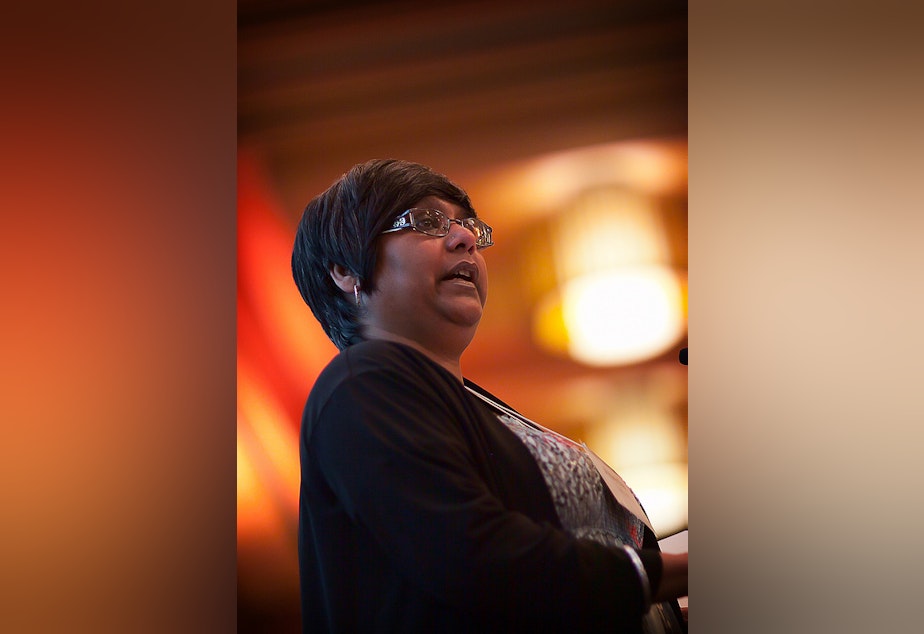Wash. Supreme Court Rejects Legal Fees, Hurdles For Poor

Washington’s judicial system abolished court fees for poor people in 2010, but county courts sought ways around the rule. Now in a unanimous decision, the Washington State Supreme Court has reaffirmed that if someone qualifies as indigent, courts need to give them access for free.
The ruling is based on circumstances around a custody case by Lynnwood resident Abeda Jafar, whose son is almost three years old. Over a year ago, she called the local crisis hotline because she was fleeing a violent relationship.
Her monthly income of food stamps and public assistance totaled $385. That’s well below the bar for people to get their fees waived in court. But when Jafar filed a parenting plan in Snohomish County Superior Court, the court said she still had to pay $50.
“Fifty dollars is a lot for a person who is very low-income,” Jafar said. She had no idea where to get the money. “Was I going to lose custody of my son, just because I didn’t have money?”
The Seattle nonprofit Legal Voice took her case to the Washington State Supreme Court. Now the court has ruled that if someone qualifies as indigent, they should have all their fees waived in civil matters like divorce proceedings.
That’s something the courts have resisted doing. The Washington Association of County Officials argued against Jafar's lawsuit before the state supreme court, saying superior courts should have more discretion to review waivers on a case-by-case basis.
King County Superior Court Judge Mary Yu has been one of the strongest supporters of waiving court fees, but she had to take on her own colleagues in the judiciary to get it through. “It was uncomfortable to raise the issues,” she said.
Even after the rules passed, Judge Yu collected documentation showing that courts continued to seek fees from the poor. “I think judges were being put in a very tough position and that is, the pressure to fund courts is great,” she said.
Faced with funding crises in recent years, courts implemented surcharges and special fees not subject to the waiver. King County imposed surcharges in 2009. Yu said in light of this ruling, she’s already contacted the court administrator to suggest that those surcharges be waived for people who qualify. Courts also imposed payment plans, or deferred the fees, declining to issue a final order until they were paid.
Judge Yu said the records showed judges continuing to charge people who clearly qualified for help. “We’re not talking about middle-income people or even low-income people,” she said. “We’re talking about people who live in shelters, who have children, who have nothing.”
As for Abeda Jafar, she said her circumstances are improving. She is studying to become a nurse.
“I’m still going through hard times,” she said, but she’s moved on from the crisis that prompted her lawsuit. Jafar said she’s hopeful that the court’s decision will help all low-income people in Washington, “so they can get some kind of help, so they don’t get discouraged.”
Legal aid attorneys said they’re pleased with the court’s sweeping affirmation of the rights of poor litigants. But they said courts are nickel-and-diming people because Washington state’s funding for courts is among the lowest in the country. Now courts will have to find other means to make up that difference.

